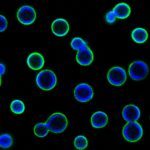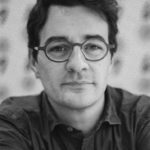Recruitment offer: 36 months starting on Sept 2021 ± 2 months
Full CV and 2 recommendations letters should be addressed at alexandre.alanio@pasteur.fr
Characterization of the role of Viable But Non Culturable and persister cells in the resistance of Cryptococcus neoformans to antifungal drugs
C. neoformans and cryptococcosis are used as organism and disease models for studying dormancy and latency. Indeed, we know that in specific conditions, subpopulation of yeasts harboring various metabolic properties and phenotypes can be generated. Using drastic conditions (host, macrophage, hypoxia/nutrient deprivation), we know that viable but non culturable cells (VBNC) and stress persister cells are generated. The definitions of these phenotypes are not fully defined in fungi and deserves much more careful attention to really understand the essence of these different phenotypes.
As a new approach in explaining the appearance of stress and drug resistance in Fungi, I want to explore the link between VBNC, stress persister cells and antifungal drug resistance/tolerance in C. neoformans.I hypothesize that subpopulations of yeasts could be/become resistant upon exposure to various stresses. These populations can be characterized as either intrinsically tolerant to stress/drugs (VBNC) or associated with acquired resistance upon stress/antifungal drugs exposure (persister cells).
I thus aim at understanding the biological differences of stress and antifungal persister cells subpopulations focusing on metabolism, proteome, transcriptome as compared to bulk populations of and VBNC with the goal to understand how subpopulations adapt and resist to drastic environmental changes and to describe the molecular mechanisms associated with those phenotypic changes in order to explore new drugs and pathways that play a role in controlling tolerance/resistance.
Skills required:
- Fluorescence and fluorescence microscopy,
- Flow cytometry and sorting,
- KO mutant screening,
- Molecular biology,
- Analysis of transcriptome data
Bibliography of the PI:
https://pubmed.ncbi.nlm.nih.gov/?term=Alanio+a&sort=date
Main papers on the subject:
Alanio A. Dormancy in Cryptococcus neoformans: 60 years of accumulating evidence. J Clin Invest. 2020;130(7):3353-3360. doi:10.1172/jci136223
Hommel B, Sturny-Leclère A, Volant S, Veluppillai N, Duchateau M, Yu C-H, Hourdel V, Varet H, Matondo M, Perfect JR, Casadevall A, Dromer F, Alanio A. Cryptococcus neoformans resists to drastic conditions by switching to viable but non-culturable cell phenotype. Plos Pathog. 2019;15(7):e1007945. doi:10.1371/journal.ppat.1007945
Hommel B, Mukaremera L, Cordero RJB, Coelho C, Desjardins CA, Sturny-Leclère A, Janbon G, Perfect JR, Fraser JA, Casadevall A, Cuomo CA, Dromer F, Nielsen K, Alanio A. Titan cells formation in Cryptococcus neoformans is finely tuned by environmental conditions and modulated by positive and negative genetic regulators. Mitchell AP, ed. Plos Pathog. 2018;14(5):e1006982. doi:10.1371/journal.ppat.1006982

